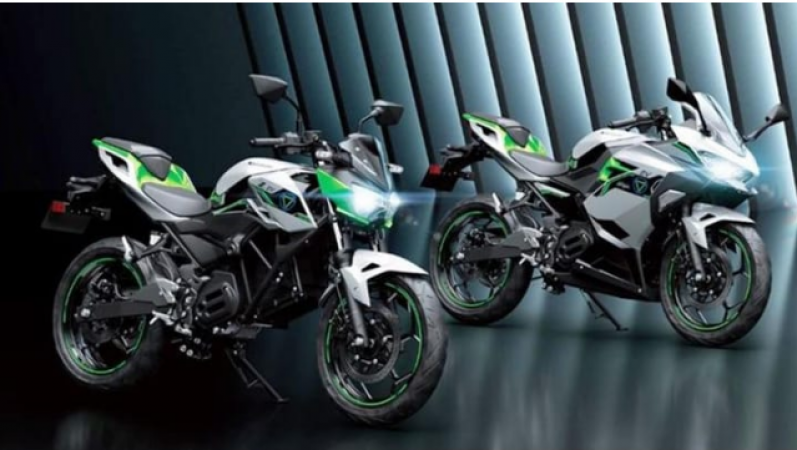
New Delhi: Kawasaki, the renowned Japanese motorcycle manufacturer, is reportedly delving into the realm of electric motorcycles with the development of two electrified models: the Ninja e-1 and the Z e-1. Building upon the foundation of their existing Ninja 400 and Z 400 counterparts, these new offerings embrace electric propulsion.
Driven by a 3.0 kWh lithium-ion battery pack, the Ninja e-1 and Z e-1 boast an estimated range of approximately 120 kilometers. With a top speed hovering around 120 kilometers per hour, they promise a blend of agility and eco-consciousness.
Scheduled for a 2023 debut, the Ninja e-1 and Z e-1 will command a premium over their conventional, gasoline-powered counterparts. Kawasaki is banking on the allure of their environmental merits to captivate prospective buyers.
Also Read: Hyundai vs. Kia Reliability: A Comprehensive Comparison
This move aligns with Kawasaki's broader ambition of asserting itself as a frontrunner in the electric motorcycle market. The company has already introduced several electric motorcycle models, including the Versys-X 300 e and the Elektrode.
Amid the rapid expansion of the electric motorcycle market, Kawasaki is positioning itself to seize this burgeoning opportunity. A target of capturing a 10% market share in the electric motorcycle sector by 2025 underscores the brand's ambitions.
Also Read: Mansory buildup its new roaming offender being a Limited Edition
The forthcoming arrival of the Ninja e-1 and Z e-1 marks a momentous stride for Kawasaki. These models mark the company's inaugural foray into electric motorcycles based on their popular Ninja and Z platforms, with the potential to entice a fresh wave of consumers into the electric motorcycle domain.
Implications and Potential Negative Aspects:
However, alongside the optimism, there are potential negative aspects:
In the wake of this transformative transition, staying informed about the evolution of the electric motorcycle market is pivotal. Whether making motorcycle purchasing decisions or contemplating investments, awareness empowers individuals to navigate these developments astutely.
Also Read: TVS Launches Jupiter ZX Drum SmartXonnect in India, Paving the Way for Connected Scooter Experience
It's worth noting that while the prospects for electric motorcycles are promising, the associated challenges and concerns must also be acknowledged and addressed to ensure a holistic and sustainable transition in the realm of two-wheeled transportation.